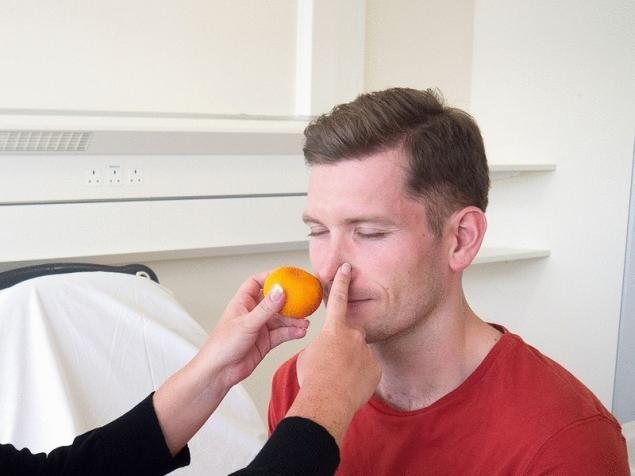445
Test smells can identify Alzheimer's in its early stages
According to the researchers, a simple test of smell can detect Alzheimer's disease in the early stages.
New research has revealed that decreased ability to smell is significantly associated with poor function of brain cells and progression of Alzheimer's disease. Scientists at Harvard medical school, investigated the connection between smell, memory and level of beta-amyloid protein in 215 older people. Tests were conducted on the ability to distinguish odors, the measured size of the entorhinal cortex, the hippocampus and amyloid deposits in the brain. It turned out smaller hippocampus and antoniella thin bark associated with a bad sense of smell.

Dr. Matthew Growdon said: "Our research shows that the role of the identification of smell is important to test older people who are at risk of developing Alzheimer's disease. For example, it may be useful to determine the "right" candidates for more expensive or invasive tests. Our results are promising but should be interpreted with caution."
The second study conducted at Columbia University Medical center, also showed that elderly people who had difficulty determined the odour is likely to suffer from dementia and Alzheimer's disease. Dr Doug brown said: "These studies add to previous evidence that changes in sense of smell as an early indicator of Alzheimer's disease, but we need large studies to test how reliable smell test could be in the clinic. In fact, many people experience some loss of sensitivity as they age. In addition, there are more than sixty medical conditions that may affect your ability to smell, including some drugs".
Source: nauka24news.ru/
New research has revealed that decreased ability to smell is significantly associated with poor function of brain cells and progression of Alzheimer's disease. Scientists at Harvard medical school, investigated the connection between smell, memory and level of beta-amyloid protein in 215 older people. Tests were conducted on the ability to distinguish odors, the measured size of the entorhinal cortex, the hippocampus and amyloid deposits in the brain. It turned out smaller hippocampus and antoniella thin bark associated with a bad sense of smell.

Dr. Matthew Growdon said: "Our research shows that the role of the identification of smell is important to test older people who are at risk of developing Alzheimer's disease. For example, it may be useful to determine the "right" candidates for more expensive or invasive tests. Our results are promising but should be interpreted with caution."
The second study conducted at Columbia University Medical center, also showed that elderly people who had difficulty determined the odour is likely to suffer from dementia and Alzheimer's disease. Dr Doug brown said: "These studies add to previous evidence that changes in sense of smell as an early indicator of Alzheimer's disease, but we need large studies to test how reliable smell test could be in the clinic. In fact, many people experience some loss of sensitivity as they age. In addition, there are more than sixty medical conditions that may affect your ability to smell, including some drugs".
Source: nauka24news.ru/






















